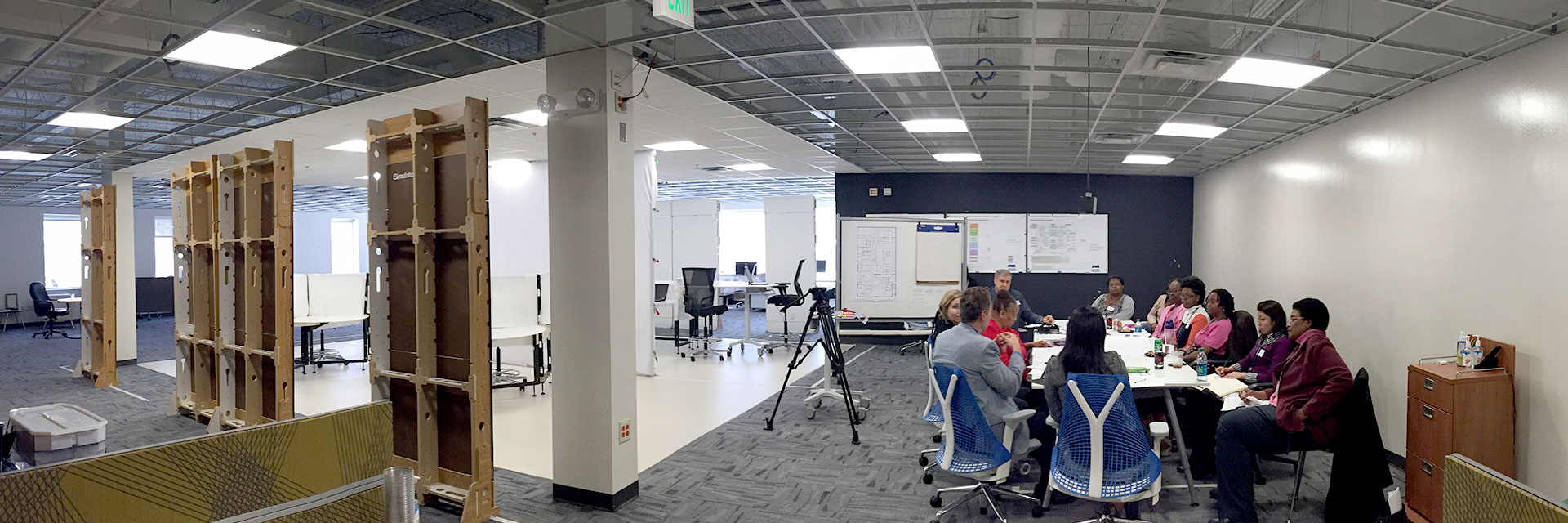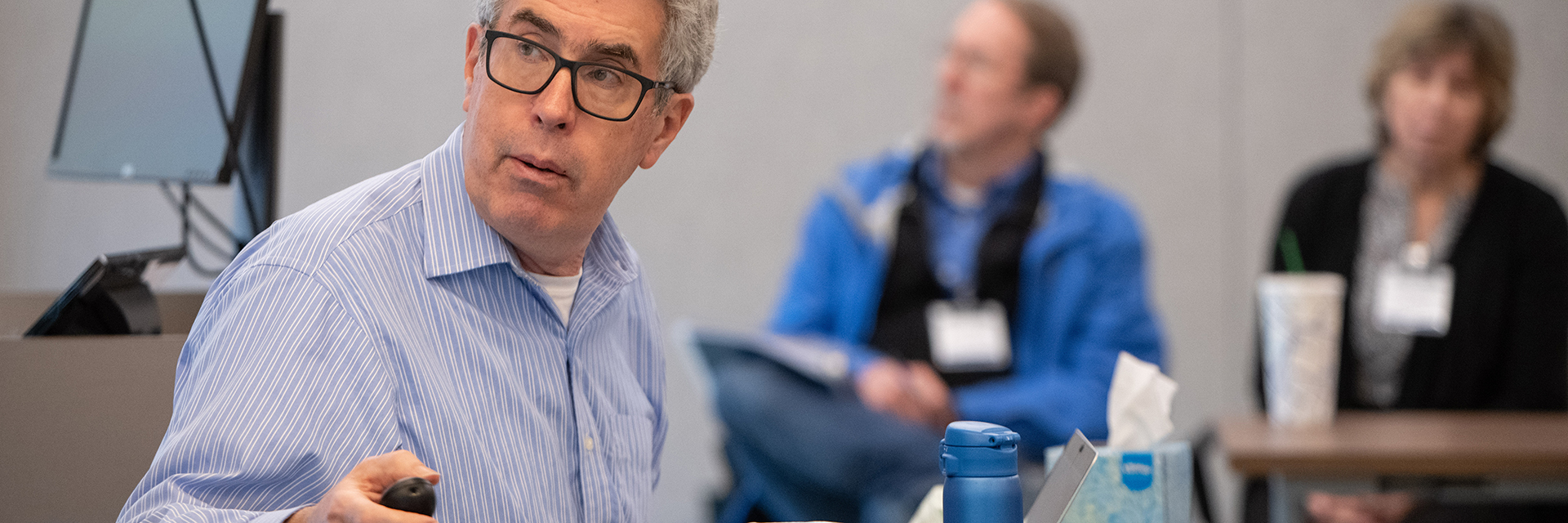
Our Work
At SimTigrate, we use evidence-based design in collaboration with partners to provide guidelines for best practices surrounding a variety of healthcare design problems. Our approach involves evaluating existing research, conducting our own research, testing proposed solutions in simulated medical environments, and translating the solutions for broad applications. We develop tools, data sets, and evidence that influence building design, health information technology, and healthcare products.
Working with architects, engineers, medical personnel, and others, we help find ideas for spaces and environments that are efficient, safe, healthy, and collaborative. Our current research is focused on design for mild cognitive impairment, infection prevention and safety, lighting in healthcare spaces, and teamwork in primary care.

How We Do It
The team uses a range of tools to identify, analyze, and model current and proposed environments. We use spatial analysis, field research, and various types of simulations to come up with our solutions. Whether we are inside the lab or outside, using computers or full-scale models, it is all about creating better spaces for patients, families, and medical personnel. We collaborate with other Georgia Tech divisions, other academic institutions, governmental organizations, and industry to examine how design impacts patient outcomes.
